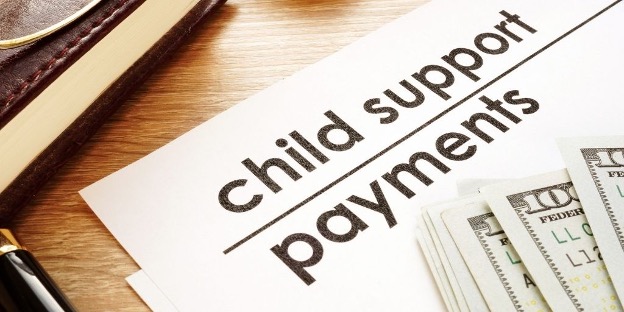“The more expansive government is, the more perils people face in daily lives, be it from IRS agents or from child support services, or from other agencies that often have little or no legal restraints on their power.”
Understanding the basics of child support in Florida
One of the important aspects to consider when determining child support in Florida is determining who will get custody of a child in the event of a divorce. In the state of Florida, custody decisions are based on what is deemed to be in the best interest of the child. The courts generally favor joint parenting arrangements where both parents have equal rights and responsibilities for their children. If a joint parenting arrangement is not possible or is not in the best interests of the child, one parent may be granted primary physical custody and the other parent will have visitation rights.
As for child support, regardless of who gets custody of child in divorce in Florida, both parents are financially responsible to their children. The non-custodial parent usually pays child support to help cover basic expenses such as housing, food, clothing, education, medical care, and other related needs. The amount of child support is determined by various factors, including the income and earning capacity of each parent, the number of children, and the costs of child care incurred by either party due to work or education.
It is crucial for divorced couples in Florida to be aware of the average cost of divorce in Florida, as child support laws are crafted with the welfare of the children as the primary focus. Regardless of the custodial arrangement post-divorce, ensuring sufficient financial support and stability for the children is of utmost importance in accordance with Florida law. Seeking advice from a seasoned family law attorney is recommended for parents to gain insight into and meet their obligations related to child support matters within the context of this legal framework.
Determining child support obligations: factors and guidelines
In Florida, child support guidelines are set by state law and take into account the income of both parents. The court considers each parent’s gross income, which includes wages, salaries, commissions, bonuses, self-employment income, pensions, social security benefits, rental income, and other sources of income. Deductions, such as taxes and certain expenses, may be applied to determine the net income for calculating alimony.
After determining the total net income of both parents, the court calculates the percentage share of each based on their contribution to the total net income. This percentage determines how much each parent must contribute to the financial support of their children.
It is important to note that while there are standard guidelines for child support in Florida if either party believes that applying these guidelines would be unfair or inappropriate under the specific circumstances of their case, they may file a motion to deviate from these guidelines with proper justification. Seeking legal advice from an experienced attorney can help individuals accurately navigate these calculations and ensure that they understand their rights and obligations.
Amending child support orders: when and how to make changes
Alimony orders in Florida can be modified if circumstances change significantly. This means that even after a divorce, a parent who has to pay child support in a divorce may request modification if his or her financial situation changes significantly. Similarly, the custodial parent may also request a modification if there is a significant change in the child’s needs or if his or her own financial circumstances change.
To initiate a modification, either parent must file a petition with the court that issued the original child support order. The petition should clearly state why they believe the circumstances have changed significantly and provide supporting evidence, such as income documents, medical records, or other relevant information.
It is important for parents to remember that the court will only approve a modification if it finds that it is in the child’s best interests. Factors such as changes in income, employment status, health, education or childcare costs may be taken into account.

Enforcement of child support orders: rights and remedies
Once a child support order has been made after a divorce in Florida, it is very important to understand the rights and remedies available for enforcement. Child support payments usually begin shortly after the divorce is finalized. The specific date may vary depending on the court order or agreement reached by both parties.
If the non-custodial parent fails to pay child support on time, there are several enforcement measures available. The custodial parent can file an application with the court to enforce the payment and hold the non-paying partner accountable. Some of these methods of enforcement include garnishing wages, intercepting tax refunds or lottery winnings, suspending driver’s licenses or professional licenses, seizing property or bank accounts, and even initiating contempt proceedings that can lead to fines or imprisonment.
Calculation of income for child support purposes
Certain types of income may be excluded from the calculation. These exclusions are means-tested public assistance benefits, such as Supplemental Security Income (SSI) or Temporary Assistance for Needy Families (TANF). Income received from a new spouse or partner is generally not taken into account when calculating alimony.
It is worth noting that imputed income may also come into play if a parent voluntarily reduces his or her income or intentionally chooses to remain unemployed or underemployed. In these cases, the court may award an amount based on potential rather than actual income when calculating child support obligations.
Shared parenting expenses: additional financial responsibility to consider
In addition to alimony, co-parenting expenses are another financial obligation that parents should consider after a divorce. These may include expenses related to transportation for visitation or joint custody, extracurricular activities such as sports or music lessons, educational expenses such as school supplies or tutoring, and medical expenses that are not covered by insurance.
While alimony covers basic needs such as housing, food, and clothing, co-parenting expenses are often considered additional financial responsibilities. Determining who should pay these expenses during a divorce may depend on specific agreements between the parents during their divorce or by court order.
To ensure that these additional costs are shared equitably, it is advisable for divorcing parents to establish clear channels of communication and keep records of all expenses related to co-parenting. This will help facilitate discussions about the distribution of financial responsibilities and prevent misunderstandings.
Understanding who should pay child support in the event of a divorce is only one aspect of navigating post-divorce finances in Florida. The costs of co-parenting add a layer of complexity to these issues, but with open communication and cooperation between both parties, it is possible to manage these financial responsibilities while prioritizing the well-being and best interests of the children. Obtaining legal advice from an experienced family law attorney can provide guidance on how to best address the costs of shared parenting within the Florida legal framework.
Health insurance and medical expenses
When it comes to health insurance and child expenses, the question of who gets child custody in the event of a Florida divorce becomes important. Generally, the parent who is granted physical custody of the child is also responsible for providing health insurance coverage. This means that if one parent has primary physical custody, he or she will be required to obtain health insurance for their child.
Florida law recognizes that both parents are obligated to pay for medical expenses that are not covered by insurance. The court may order both parents to share these additional costs depending on their financial means and circumstances. For divorcing couples, it is important to keep track of all medical expenses for the child, as documentation may be required when seeking reimbursement or modifying child support obligations.

The role of parenting time in the calculation of alimony
When does child support start after divorce, an important factor to consider is the time spent on parenting. In Florida, the time that each parent spends with the child may affect the calculation of child support. The court takes into account both physical custody (where the child primarily resides) and the visitation schedule.
The more time the non-custodial parent spends with his or her children, the lower the child support obligation may be. This is due to the fact that the non-custodial parent incurs additional costs associated with caring for them during this period. These costs are taken into account when calculating alimony.
It is important to note that the time spent raising children does not in itself determine who should pay alimony in a Florida divorce. The court still takes into account other factors, such as income, earning capacity, and financial needs of both parents, before making a final decision on child support obligations.
Higher education and child support: preparing for future expenses
In addition to the financial responsibilities associated with child support in the event of a divorce, parents in Florida should also consider the potential costs of their child’s college education. Although child support usually ends when a child reaches the age of majority or graduates from high school, there may be provisions for continuing child support to cover higher education expenses.
Under Florida law, parents are not automatically required to pay for their child’s college education. If it is determined that it is within the ability of either parent to do so and consistent with their ability to pay, the court may order additional financial support for post-secondary education expenses. This may include tuition, books, supplies, room and board, and other related expenses.
It is important that both parents plan ahead and discuss their expectations for college expenses during the divorce process or when modifying an existing child support order. By proactively addressing this issue and including language about potential higher education contributions in a parenting plan or settlement agreement, both parties can be assured that they will be financially prepared when the time comes for their child to attend college.
The determination of who should pay child support in the event of a divorce does not automatically extend to paying for college expenses unless specifically addressed by a court order or agreed to by both parties. Open communication and proactive planning can help avoid future conflicts by providing stability and financial assistance as children seek higher education. A consultation with a family law attorney can provide guidance on the best way to approach these discussions and address any concerns about future education expenses during the divorce process.
Finding legal assistance
When it comes to child support issues, seeking legal assistance is essential to navigate the complexities of Florida law. Whether you are trying to collect alimony after a divorce or want to make changes to an existing order, finding the right attorney is essential.
One important factor to consider when choosing an alimony attorney is their experience and knowledge of family law. They should be well-versed in Florida’s specific laws and guidelines for child support calculations, modifications, and enforcement.
Another factor to consider is their availability and communication style. Child support issues can be emotionally charged, so it’s important to work with an attorney who listens carefully and clearly communicates your rights, responsibilities, and available options throughout the process.
Ask about their availability and responsiveness. Timeliness is crucial when dealing with child support litigation. Make sure the attorney you choose has enough time and resources to handle your case quickly.
Consider reading testimonials from previous clients or getting recommendations from trusted sources, such as friends or family members who have been through similar situations, before making a decision. Remember that an experienced attorney will provide you with valuable guidance every step of the way.




Comments are closed.